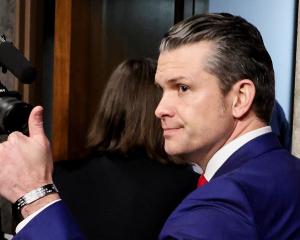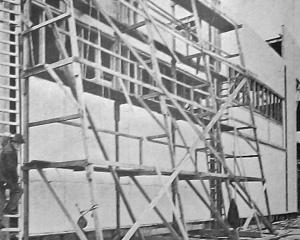
Rev Dr Wayne Te Kaawa
As I write this, I am at a Maori theology symposium at Te Whetu o te Rangi marae in Tauranga. I am also spending quality time with my many mokopuna. This event is organised by Nga Wai Hohonu, a group drawn from many churches dedicated to advancing the cause of indigenous people doing theology. This is a wonderful way to start to Easter Holy Week.
I am surrounded by close to 100 people — Maori, Pakeha and Pasifika peoples from many different Christian churches.
We talk, we sing, we listen and ask the honest and hard questions of ourselves and each other.
Two thousand years ago, people came together in Jerusalem to celebrate Passover, one of the most sacred Jewish festivals. There were foreign political officials, religious leaders, followers of Jesus including his family and friends, freedom fighters and people from different parts of society.
In the midst of this sacred time, they had to decide what was going to happen to a person named Jesus from Nazareth. We know the outcome of this story which has reverberated throughout history.
Two thousand years later, here I am sitting in a beautiful wharenui that tells the story of Ngati Pukenga in carvings, weaving, tukutuku panels and kowhaiwhai. The Jesus story and the events of that week are what has brought us together to explore and share with each other in this safe place how we are authentically Maori and authentically Christian at the same time.
Are churches safe places for Maori? At times I have serious doubts that churches are a safe place for anyone who is different. While many churches are incorporating Maori words into their worship and church life, there are just as many churches who tell people who are different that they must leave their culture and language at the door.
A Maori proverb dictates that my response in challenging situations must be ‘‘me utu koe te kino i te pai’’ (when someone is not good to you, do good for them). Jesus was the exemplar of this prover; he was ridiculed, beaten, humiliated, nailed to a cross and allowed to linger for hours in excruciating pain until he died. Even in death he was further humiliated by having a spear thrust into his side. Not once did he meet violence with violence or return harsh words hurled at him with vigour. Instead Jesus modelled this proverb, praying for his abusers, offering compassion for fellow suffers on their crosses and asking forgiveness for those who made him suffer making them the centre of God’s love.
This proverb drawn from my culture along with the example of Jesus provide me with a model of how I should respond when I meet resistance in church or society because of my difference.
I am Maori, Presbyterian, an ordained minister and a member of St Mark’s, Pinehill, a predominantly Pakeha church. This parish has never told me that I must leave my language or culture at the door. The first day I walked through the doors of this church, conscious of my difference, two elderly Pakeha gentlemen welcomed me with such graciousness and hospitality that I have never left. They and other members of the parish, especially the children took me to the centre of their church life by inviting me to be their minister. I have only ever ministered in intensely Maori churches and communities. This invitation took me completely out of my comfort zone, but it has been the most enriching experience of my ministry career.
This Easter and every Sunday, how will you welcome to your church the stranger who is different to you?
Ask them to leave their differences at the door or show them graciousness and hospitality, making them the centre of church life and God’s love?
- The Rev Dr Wayne Te Kaawa is a lecturer in Maori Theology, the Theology Programme, at the University of Otago.












